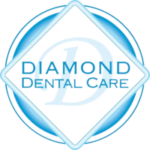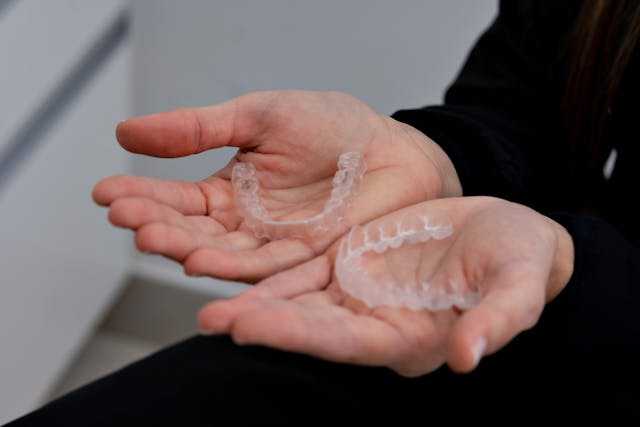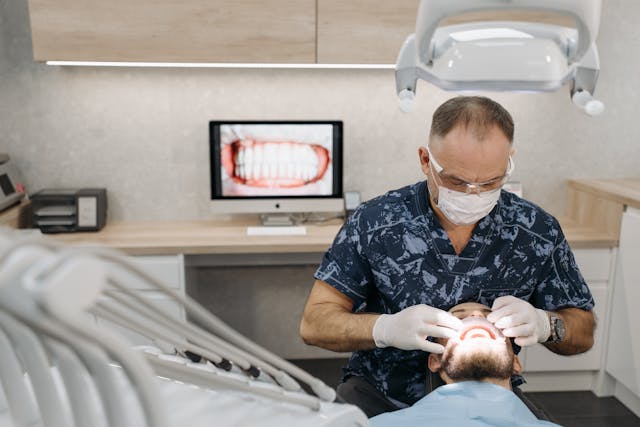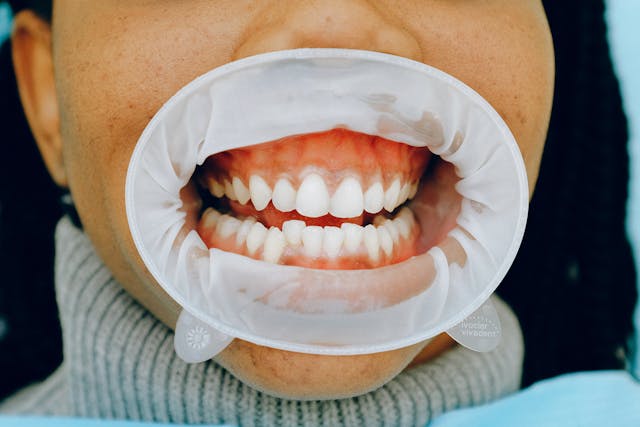Introduction – Oral Hygiene
We all love the confidence that comes from a bright, healthy smile—but good oral hygiene goes way beyond looks. It’s about keeping your teeth and gums in peak condition so you can enjoy eating, speaking, and smiling without discomfort. The best part? You don’t need a ton of expensive tools—just consistent habits and a bit of know-how.
Whether you’re brushing at the crack of dawn or flossing before bed, the effort you put into home care pays off in fewer cavities, fresher breath, and better overall health. And when it’s time for a checkup? The team at Diamond Dental Care in Diamond Bar, CA is right there with you, ensuring your hard work at home leads to long-term results.
Call us at (909) 860-7579 to book your visit. You can also connect with us on Facebook or leave a review on Yelp. We look forward to seeing you!
Tip 1 Oral Hygiene– Master the Art of Brushing
Let’s face it—most of us brush like we’re running late for work (because… we usually are). But brushing properly is the most basic, most crucial part of oral hygiene.
Brushing Isn’t a Race—Slow It Down
Two minutes, twice a day. That’s the magic number. Anything less is like rinsing your dishes without soap—it kind of works, but not really. Take your time and make sure you cover every surface, especially those back molars.
The Right Toothbrush Makes a Big Difference
Soft-bristled brushes are gentle on gums but still get the job done. Electric toothbrushes are even better—they do most of the work for you and help avoid overbrushing.
Fluoride Toothpaste: Your Daily Armor
Fluoride strengthens enamel and helps prevent cavities. Choose a toothpaste that carries the ADA seal—it’s proof that you’re using something clinically approved to protect your smile.
Brushing Technique and Timing Tips
Use small circular motions, angling the brush toward the gumline. Don’t forget your tongue, the roof of your mouth, and inner cheeks—they all harbor bacteria too.

Tip 2 Oral Hygiene – Flossing is Not Optional
Think of brushing as sweeping your floor and flossing as vacuuming the corners. You need both.
Why Brushing Alone Won’t Cut It
Your toothbrush bristles can’t reach between teeth, which is where plaque loves to hide. Flossing gets in there and clears it out before it turns into tartar or leads to gum inflammation.
Step-by-Step Flossing Guide
- Use about 18 inches of floss.
- Wrap it around your fingers and gently glide between your teeth.
- Curve the floss in a “C” shape around the tooth and move it up and down.
- Repeat for each tooth, using a clean section of floss.
Types of Floss and What Works Best
There’s waxed, unwaxed, flavored, tape, picks—you name it. Use whatever helps you floss regularly. Picks are great for tight spaces or on-the-go flossing.
Common Flossing Mistakes to Avoid
Snapping floss can injure your gums. Always be gentle and precise.
Tip 3 Oral Hygiene – Clean Your Tongue (Seriously!)
Bad breath? It often starts on your tongue.
Why Your Tongue is a Bacteria Magnet
Your tongue’s surface is like a shag carpet—it traps bacteria, dead cells, and food debris. Skip cleaning it, and you’re giving bacteria free rent.
Scrapers vs. Toothbrush—What’s More Effective?
A tongue scraper offers a more thorough clean than a toothbrush. They’re inexpensive and take just a few extra seconds to use.
How Often Should You Clean Your Tongue?
Every time you brush. No exceptions.
Tip 4 Oral Hygiene – Eat for Your Teeth, Not Just Your Taste Buds
Your diet is either helping or hurting your smile.
Top Foods That Protect Enamel
Think calcium and crunchy veggies: cheese, yogurt, leafy greens, carrots, and apples. They help strengthen teeth and increase saliva flow, which naturally cleans your mouth.
Hidden Sugar Bombs to Watch Out For
Sports drinks, flavored waters, “healthy” granola bars—they’re sneaky. Always check the label for added sugars.
Snack Smart—What and When Matters
Frequent snacking gives bacteria more to feed on. If you must snack, rinse with water after and avoid sticky, sugary stuff.
Tip 5 Oral Hygiene – Don’t Skip the Dentist (Ever!)
Even with perfect home care, you need a professional’s touch.
The Power of Professional Cleaning
Dentists can reach areas your toothbrush and floss can’t. They also spot early signs of problems—saving you time, pain, and money later on.
How Diamond Dental Care Protects Your Smile
At Diamond Dental Care, we combine technology, experience, and compassion to give you the best dental experience in Diamond Bar. From preventative cleanings to cosmetic dentistry, you’ll leave with a healthier, brighter smile—every time.
Signs It’s Time to Schedule Your Next Visit
- Bleeding gums
- Tooth sensitivity
- Persistent bad breath
- It’s been more than 6 months since your last cleaning
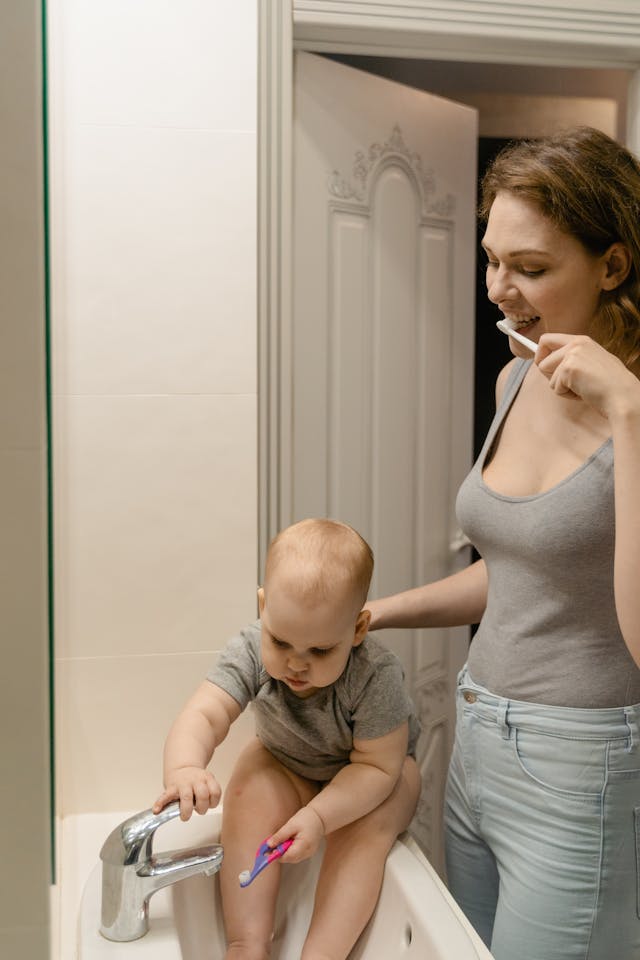
Oral Hygiene for Every Age
Everyone’s smile is different—and so is their care.
Teaching Toddlers the Basics Of Oral Hygiene
Start brushing as soon as the first tooth appears. Make it fun with songs, timers, and colorful brushes.
Teens and Braces: Extra Steps
Braces trap food easily. Teens need to brush and floss more carefully and may benefit from water flossers.
Adults and Gum Health
As we age, gums can recede. Switch to gentle products and keep up with regular dental visits.
Seniors and Dry Mouth
Medications often cause dry mouth. Stay hydrated, chew sugar-free gum, and talk to your dentist about mouth-moisturizing rinses.
Avoid These Common Oral Hygiene Mistakes
Let’s clear up a few bad habits.
Brushing Too Hard
More pressure doesn’t mean more clean—it means gum damage and enamel wear. Be gentle.
Ignoring Bleeding Gums
Bleeding isn’t normal. It’s often a sign of gingivitis, which needs professional attention.
Using Expired Products
Yes, toothpaste and mouthwash have expiration dates. Toss them once they’re past their prime.
The Role of Mouthwash in Daily Care
It’s not essential—but it’s a great booster.
Mouthwash Isn’t Just About Fresh Breath
Many rinses have antibacterial agents or fluoride that protect against cavities and gum disease.
Choosing Alcohol-Free Options
Alcohol can dry out your mouth. Go for alcohol-free if you’re prone to sensitivity or dryness.
When to Rinse—And When Not To
Don’t rinse with water right after using fluoride mouthwash—it washes away the good stuff!
Why Choose Diamond Dental Care in Diamond Bar, CA
Location, Professionalism, and Personalized Care
Conveniently located at 303 South Diamond Bar Blvd, Ste 2C, we offer the most advanced care in a warm, friendly setting. Our team takes the time to understand your needs and makes every visit stress-free.
Services Offered and Patient-First Philosophy
We provide everything from preventative cleanings to cosmetic makeovers, all focused on comfort and long-term health.
Why Locals Trust Diamond Dental Care
From kids to seniors, patients love our gentle approach and personalized service. Call (909) 860-7579 to schedule your next visit and experience the difference.
Conclusion- Oral Hygiene
Your smile is one of your greatest assets—and it’s worth protecting every single day. With just five simple tips, you can maintain great oral hygiene at home and avoid costly, painful dental problems down the road. And when it’s time for that checkup? You know where to go: Diamond Dental Care in Diamond Bar, CA, where your health and comfort come first.
Call us at (909) 860-7579 to book your visit. You can also connect with us on Facebook or leave a review on Yelp. We look forward to seeing you!
FAQs– Oral Hygiene
Q1: How often should I brush and floss?
Brush twice a day and floss once daily—no exceptions.
Q2: Can I skip dental visits if my teeth feel fine?
Nope! Many issues are silent until they’re serious. Preventive visits are key.
Q3: What causes bleeding gums?
Usually plaque buildup or gingivitis. See your dentist if it continues.
Q4: Is mouthwash a replacement for brushing?
No, it’s a supplement—not a substitute.
Q5: How do I know if I’m brushing too hard?
If your bristles fray quickly or your gums are receding, ease up.
